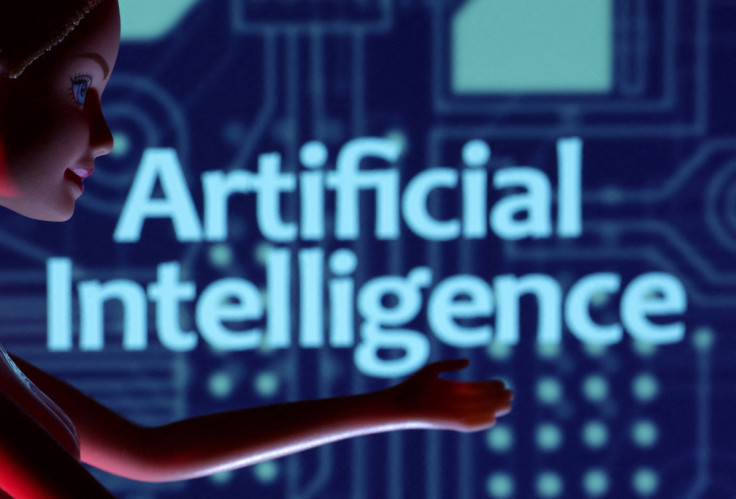House Democrat Warns About AI-Generated Political Ads After 'Beat Biden' Video, Introduces New Bill
KEY POINTS
- The REAL Political Advertisements Act wants "clear and conspicuous" disclaimers in AI-generated ads
- Experts believe AI will play key role in the 2024 presidential election
- Republicans slammed Biden's re-election bid with an AI-generated ad last week
A Democratic lawmaker has introduced a new bill that requires disclosure of artificial intelligence-driven content in political advertisements after Republicans released an AI-generated ad to attack President Joe Biden's re-election announcement last week.
The bill, introduced by Rep. Yvette Clarke, D-N.Y., proposes that political ads made using AI should have disclaimers, whether the ads featured images, text, audio or video footage. The disclaimer should be provided "in a clear and conspicuous manner," the bill reads.
It is titled the "Require the Exposure of AI-Led Political Advertisements Act" or the "REAL Political Advertisements Act."
REP. YVETTE CLARKE: Unveils Legislation Requiring Disclosure of AI Use in Political Ads pic.twitter.com/xAjBsS69Qx
— SEGAMI (@segamihcfund) May 2, 2023
Clarke said she introduced the bill in response to the "Beat Biden" political ad that the Republican National Committee (RNC) released late last week. She told The Washington Post in an interview Tuesday that the disclaimer on ads could be a model for transparent AI deployment.
The RNC released the video shortly after Biden confirmed his 2024 run. It featured AI-generated images that simulated a dystopian future if Biden wins again.
NIGHTMARE: What if Joe Biden, the weakest president we’ve ever had, is re-elected? pic.twitter.com/b5HvY9GEr0
— GOP (@GOP) April 25, 2023
"Our current laws don't begin to scratch the surface with respect to protecting the American people from what the rapid deployment of AI can mean in disrupting society," Clarke said.
Though the RNC ad had a disclaimer, she warned not all individuals or groups making such ads will follow suit and this could pave the way for dire consequences during the 2024 presidential campaign.
The Democratic representative said she believes AI has "really important uses." However, she feels certain rules should be established to ensure that the American public "are not deceived or put into harm's way."
"If AI-generated content can manipulate and deceive people on a large scale, it can have devastating consequences for our national security and election security," Clarke said in a statement Tuesday.
Experts say AI is already started to change the political campaigning environment.
"If 2008 and 2012 were the Facebook elections, this will be the AI election – but it'll be massively more disruptive," said Tom Newhouse, vice president of digital marketing at campaign strategy firm Convergence Media.
Newhouse told Axios that he was willing to bet the "October surprise" for 2024 would be related to AI. The term "October surprise" has been linked to big events or news taking place weeks before the November election.
Jonathan Reilly, co-founder and COO of AI platform Akkio, said artificial intelligence would do well for big candidates such as those running for president or "anyone who's raising money from a lot more people."
Political campaign operatives have already started analyzing how AI-generated content will be contained on social media.
In March, operatives reportedly asked Facebook parent Meta about how it planned to address fake images created with AI. People familiar with the exchange, who spoke on condition of anonymity, told the Post that a Meta employee explained fake images were first reviewed by independent fact-checkers instead of being treated immediately as manipulated content. Warning labels were then added to dubious media or content on the platform.
Political observers and analysts are particularly concerned about how AI will affect local political races as they get less scrutiny, according to the New York Times.
There are also increasing concerns about generative AI being used by some players to pretend to be potential voters, wasting the time of campaign staff. A deepfake video mimicking Chicago mayoral candidate Paul Vallas emerged on Twitter in February, which used the voice-cloning technology.
Gary Marcus, professor emeritus of cognitive science at New York University, told Fortune it was hard not to see how AI-generated "misinformation" will play a major role in the 2024 election.
Some experts think otherwise. Chris Meserole, a fellow at the Brookings Institution, doesn't think AI will bring any drastic changes to the political environment next year than what was already seen in the previous presidential elections.

© Copyright IBTimes 2024. All rights reserved.






















